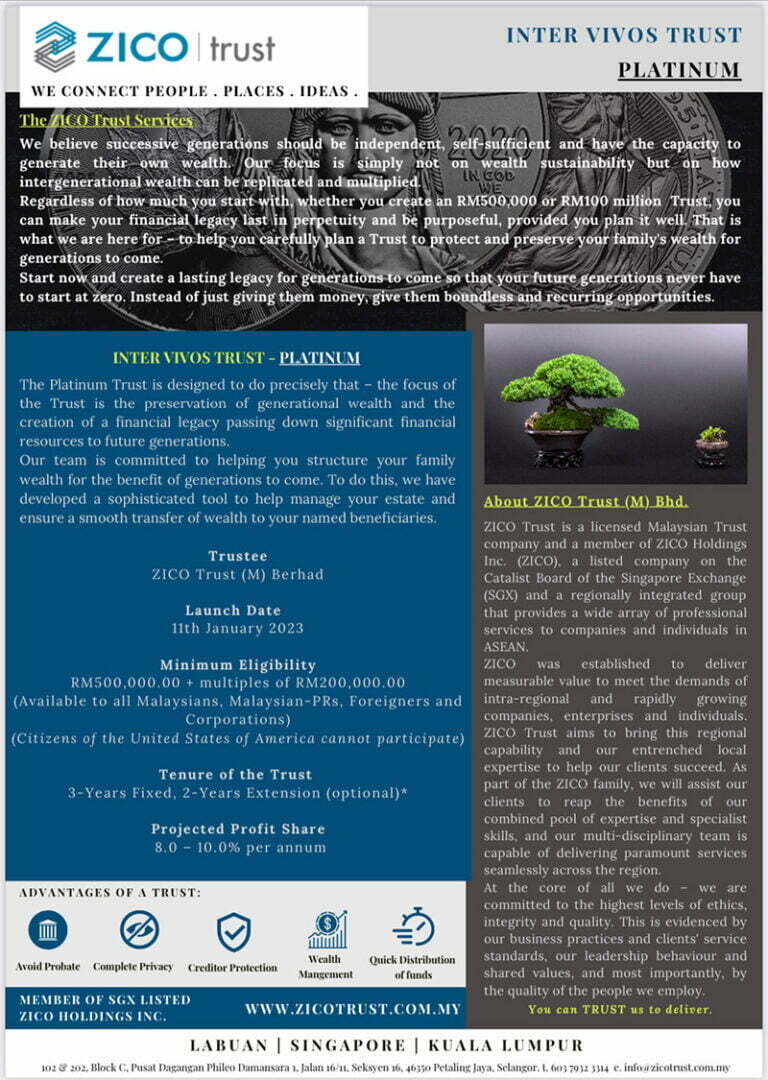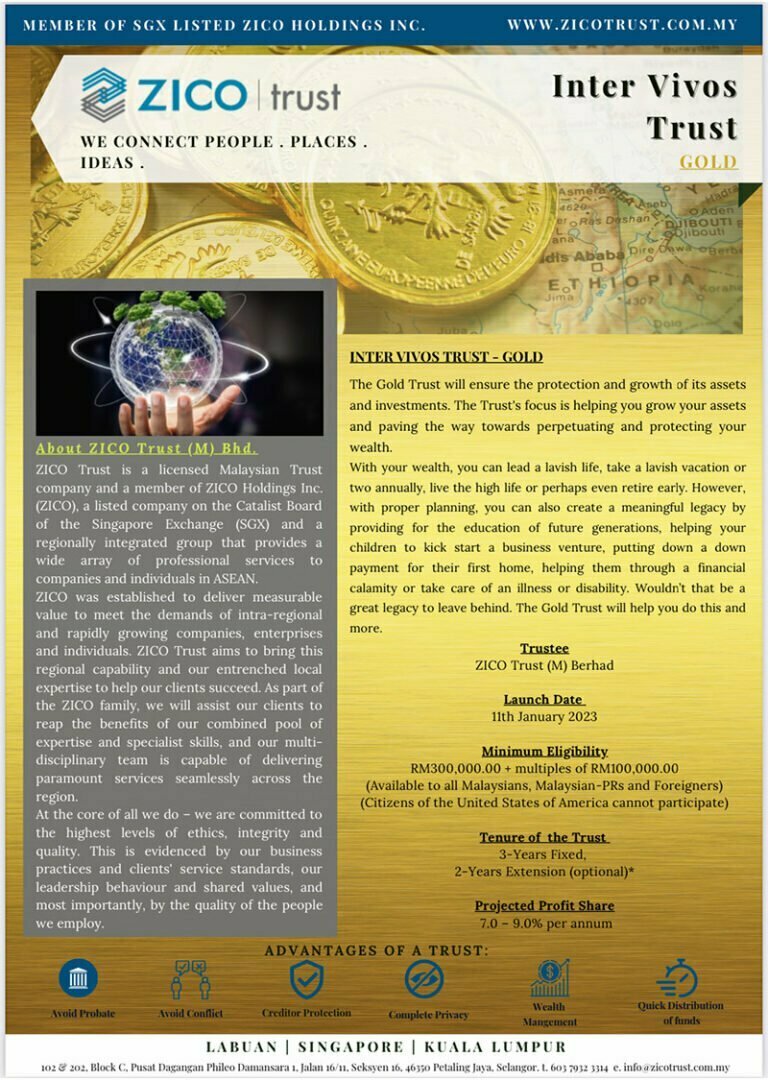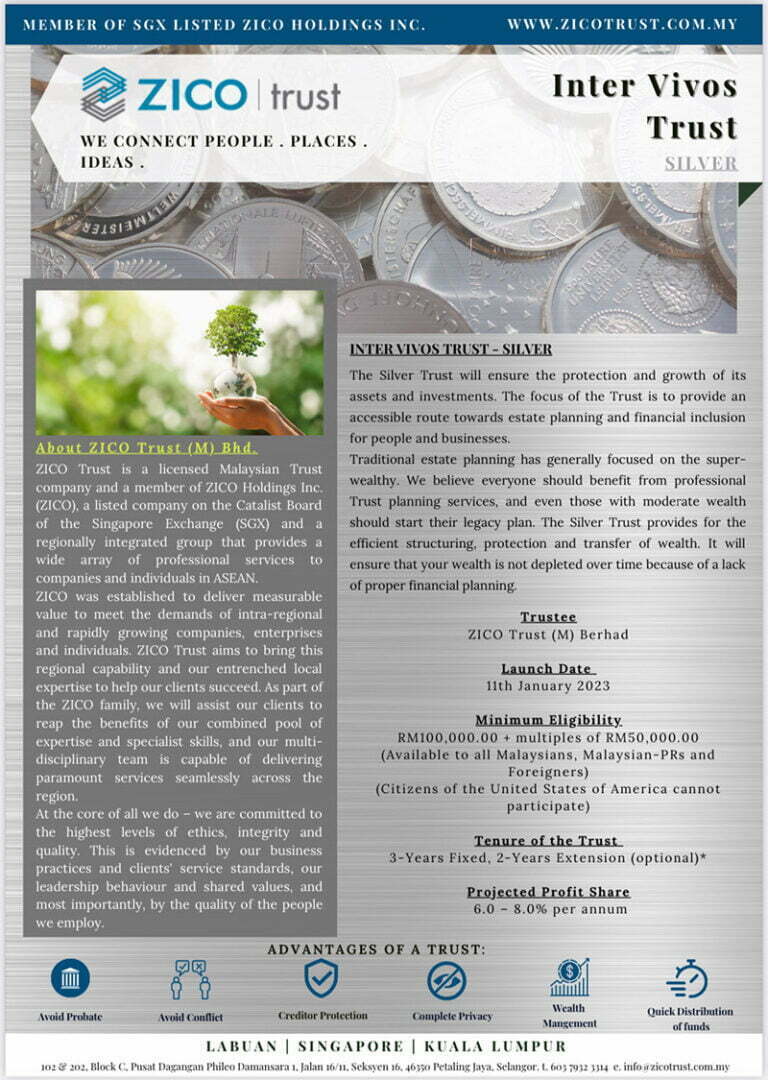Here, I’ll summarize the 3 main benefits for setting up a living trust. They are as follows:
1. Emergency Fund
Supposedly, you placed RM 500k in a living trust. In critical life events such as:
- Death
- Disability
- Disease / Dementia
The trustee can distribute the RM 500k quickly (14 days) to:
- Your beneficiaries (Death)
- Your guardian (Disability / Dementia).
In the event of death, your beneficiaries could use this sum to pay for:
- Fees and expenses related to estate administration.
- Debt servicing or settlement to retain ownership of your estate.
- Living expenses of your beneficiaries.
Whereas, in the event of disability or disease, your guardian could use this cash to pay for:
- Expenses related to medical and nursing costs.
- Debt servicing or settlement to retain ownership of your estate.
- Your living expenses.
2. Wealth Preservation
On the other hand, a living trust can be set up to preserve wealth. For instance, you may place assets (cash, properties, shares, … etc) into a living trust. You can instruct the trustee to hold onto these assets throughout the duration of a trust (10, 20, … maximum 80 years) on behalf of your beneficiaries with a trust deed. In that period, you could choose to retain assets or distribute the assets to your beneficiaries in stages (like installments). Such versatility is helpful to:
- Prevent losses from asset mismanagement by your beneficiaries.
- Hold and retain wealth for financially dependent beneficiaries.
Financially dependent beneficiaries may include:
- Minors
- Individuals with special needs.
- Spendthrift children
- Elderlies.
3. Wealth Creation
Supposedly, you placed RM 500k into a living trust. The question is: “Could your trustee invest the cash entrusted to generate returns?”.
The answer is: “It depends on the trust deed”.
If you state that the cash is not to be invested and to be held in FDs, the trustee must act according to the trust deed.
However, if you state that the money is to be invested in specific investments of your preference, the trustee shall act accordingly.
But, there is a possibility where you enable the trustee to use their discretion in deciding on the choice of investment vehicles for projected returns. If that’s the case, the investment choices are limited to a list of “Authorized Investments” as stipulated under Section 4 in the Trustee Act 1949.
Link: Trustee Act 1949
As such, the investment choices, potential returns, and the risks involved would be dependent on the trust deed, which is a document that stipulates “what you can do and cannot do” with the assets entrusted to your trustee.
It is imperative for you to consider the above factors to form a living trust which serves the financial objectives of yourself and your family.
The Role of an Estate Planner
In conclusion, a living trust is a versatile financial tool that is capable of fulfilling several different financial objectives. The key is to understand how it works and set up one that could serve your needs. As each individual is different, it is ideal for one to work with an experienced estate planner to formulate his or her plan when it comes to estate administrations.
For a start, you can begin by filling up your details below to book yourself a 30- minute consultation session. Our promise to you is: “You shall walk away with at least one key idea to secure your family’s financial future.”



